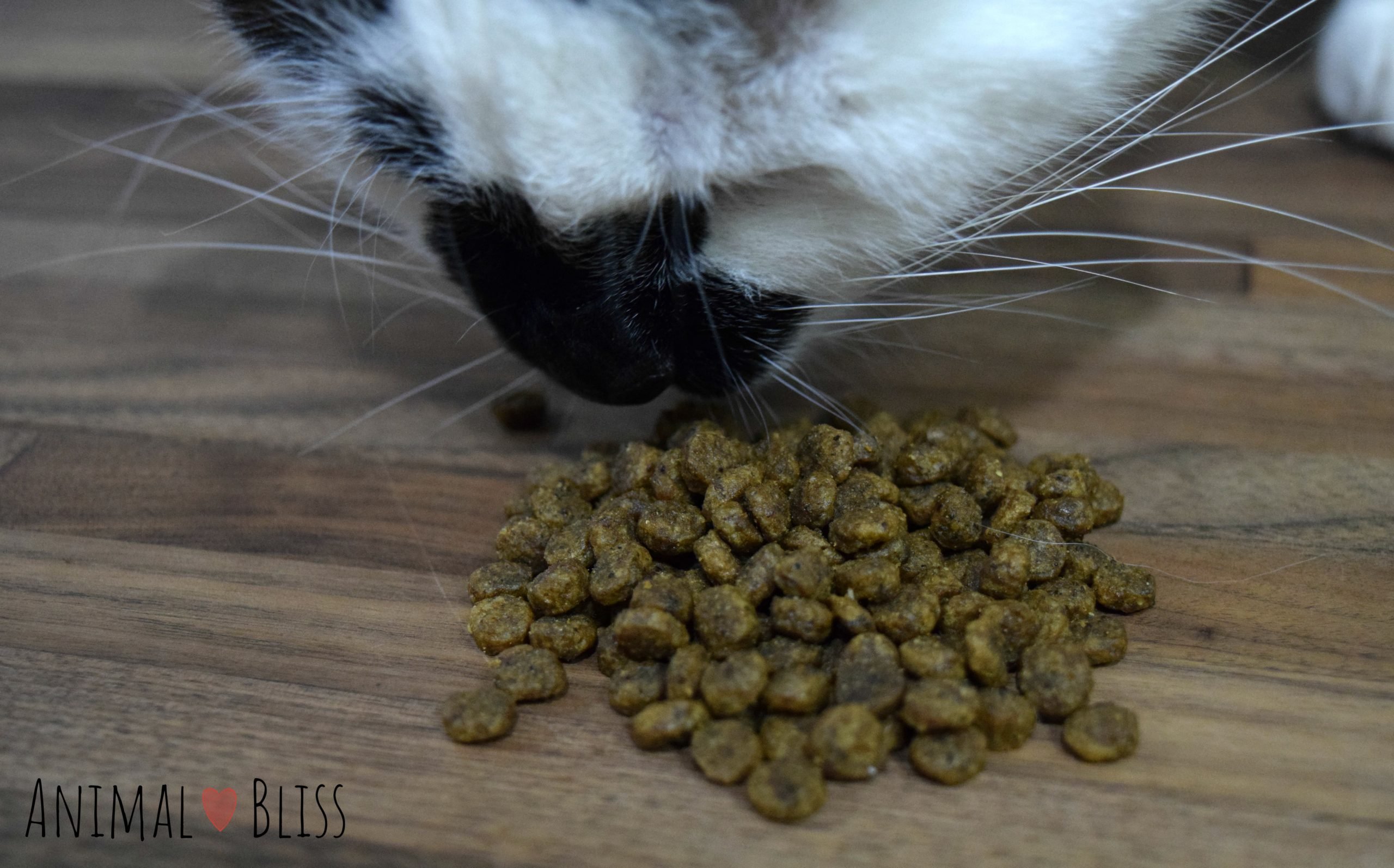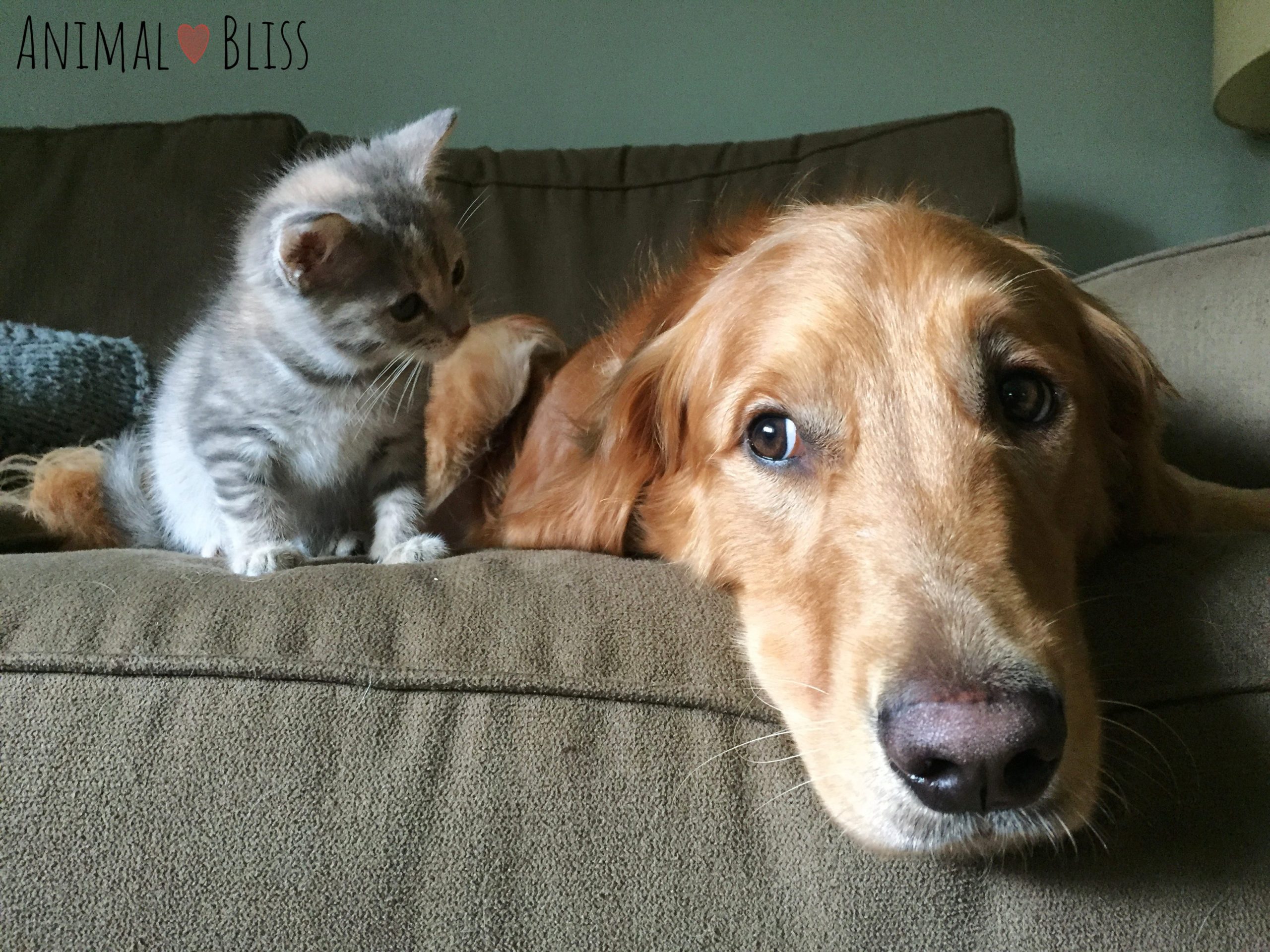So, you’re getting a kitten – Congratulations! You’re in for a lot of love (and a lot of work). Kittens are adorable, but they can also be mischievous little creatures. To help you prepare for your new furry friend, we’ve put together this list of 23 kitten tips to help ensure that your sweet little kitten grows up to be a healthy and happy cat.
We’ve broken these tips into several sections to make it easier to browse so feel free to use the links below to jump straight to the information you are looking for!
Choosing the Right Kitten for your Home
Now that you’ve decided to add a kitten to your home, here are a few things to consider before picking them out:
1. Breed and Personality
First, think about what kind of personality you’re looking for in a cat. Do you want a laid-back lap cat or an energetic playmate? Some breeds are known for being more active, while others tend to be more laid-back.
Next, consider whether you have another pet at home that your new kitten will need to get along with. It’s important to introduce kittens and cats slowly so they can learn to coexist peacefully. If you have a dog, you may want to choose a kitten that has been raised around dogs so they’re comfortable with each other from the start. Don’t just assume that dogs and cats won’t get along. Our cats and dogs have always been inseparable!

If you are adopting (please do!), ask the staff a lot of questions to try and find the right fit for your home.
2. Age
Another thing to weigh in your decision is what age kitten you’re looking for. Kittens under six months old require a lot of care and attention, so be prepared for late nights and early mornings if you go this route. If you opt for an older kitten or adult cat, they’ll likely be already litter box trained and won’t need as much supervision.
No matter what kind or age of kitten you choose, remember that they all require plenty of love, patience, and attention to thrive.
3. How to Choose a Healthy Kitten
When it comes to adopting a kitten, there are a few things you should keep in mind in order to choose a healthy one. For starters, take a look at the kitten’s coat. It should be shiny and free of any bald spots or mats. Secondly, check for any sign of discharge from the eyes or nose. Third, observe the kitten’s behavior. A healthy kitten will be playful and curious, not lethargic or withdrawn. Lastly, ask the shelter or rescue organization about the kitten’s health history and whether it has been spayed or neutered.
4. The Best Time to Get a Kitten
The best time to get a kitten is typically around 8 weeks of age. At this age, they are old enough to have had all of their vaccinations and be able to go home with you, but they are still young enough to be easily bonded with and trained.
Preparing your Home for a Kitten
Before bringing your kitten home, there are some things you should do to create a safe and welcoming environment for your new furry friend.
5. Gather all the Necessary Kitten Supplies
Kitten’s don’t require a whole lot of upfront investment, but there are a few things you’ll need to have:
- A litter box and litter. You’ll want to choose a litter box that’s easy to clean and big enough for your kitten to move around in comfortably. As for litter, there are many types available on the market, so you may have to experiment a bit to find one that works best for you and your kitten. We upgraded to an automatic cleaning litter box a few years ago and can’t imagine going back.
- A scratching post. Scratching is instinctive for cats and it’s important to provide them with an outlet for this behavior. Otherwise, they may start scratching up your furniture instead!
- Food and water bowls. Stainless steel or ceramic bowls are best since they’re easy to clean and can’t be tipped over very easily.
- A bed (or two). A warm, cozy bed or cat cave is the perfect spot for your kitten to curl up in when they need some rest or relaxation. You can find beds specifically designed for kittens online or at most pet stores.
6. Kitten Proofing your Home
Kittens are curious creatures and will explore every nook and cranny of your home. To keep your kitten safe, you’ll need to kitten proof your home before they arrive.
Start by doing a thorough check of your home, looking for any potential hazards. Remove anything that could be dangerous to a kitten, such as toxic plants, sharp objects, or small items that could be swallowed.
Try to think from a kitten’s perspective: are there any nooks and crannies where a curious kitten could get stuck or hurt? Be sure to block off any small spaces under furniture or appliances, and secure any loose cords or wires. Low-hanging tablecloths may invite kittens to pull potentially heavy items off of tables and onto themselves. Also make sure to put away fragile items or heirlooms – kittens love to bat things around and they could easily break something valuable or even cut themselves on the pieces.
7. Give your Kitten a Safe Place to Sleep and Explore
Once you’ve scanned your home for potential dangers, create a comfortable space just for your kitten with all their essentials within reach. A litter box, toys, food and water bowls, scratching post, and bedding should all be placed in a bedroom or a quiet corner in the house
Giving them a designated space of their own will help prevent them from getting into trouble or getting hurt.
Tips for Settling Your Kitten In
When you first bring your kitten home, it can be a very overwhelming experience for them. There are new sights, smells and sounds that they are not used to and this can be quite scary for them. Here are some tips to help settle your kitten in and make the transition as smooth as possible:
8. Give them Time to Adjust
It is important to give your kitten time to adjust to their new surroundings. Don’t try to force them to come out of hiding or explore too much too soon. Let them take things at their own pace and they will come out when they feel ready.
If you have other pets in the home, introduce them very slowly to avoid any conflict. And make sure to supervise these interactions very closely for the safety of everyone involved.
9. Keep them Calm
Avoid any overly stimulating activities or situations during the first few days/weeks in their new home. This means no chasing games, wrestling or playing with really loud toys! Stick to gentle petting and cuddles instead so they don’t get too overwhelmed or stressed out.

Feeding your Kitten
A nutritious diet is one of the most important things you can do to ensure your kitten’s health and well-being.
10. Choosing the Best Kitten Food
Kitten food is different from adult cat food in a few important ways. First, it contains more calories and fat to help your kitten grow. Second, it has a higher protein content to support your kitten’s developing muscles. Third, it has more essential nutrients like vitamins, minerals, and taurine to keep your kitten healthy.
So how do you choose the right kitten food? Here are a few things to keep in mind:
- Avoid cheap or generic brands that may be lacking in key nutrients and instead opt for a high-quality brand that is tailored for kittens. As we mentioned, kitten foods are higher in calories and nutrients than adult cat foods, which is important for their rapid growth and development. Kittens need a lot of protein to help them grow, fat in their diet for energy and to help with their coat, and vitamins and minerals for overall health. A good quality kitten food will be fortified with all of these essential nutrients.
- Avoid foods that are high in sugar or carbohydrates. These can lead to weight gain and other health problems down the road.
- Kittens need a mix of canned and dry food, as they can have difficulty chewing dry food with their small teeth. Due to this, they may not get all the nutrients they need from dry food alone.
- Avoid giving your kitten cow’s milk, as it can cause stomach upset. Instead, give them specially formulated kitten milk replacer if necessary.

11. Kitten Feeding Tips
Adult cats only need to be fed once or twice a day; the same does not go for kittens. Kittens are rapidly growing and expending a lot of energy. For kittens under six months old it is recommended to feed them six small meals a day. For kittens that do not have weight problems you could also leave out unlimited kitten food for them to graze as they please, but being in control of the feedings establishes a strong bond between you and your cat.
Here are some tips for feeding your kitten:
- Start with a small amount of food at each meal and increase as needed.
- Feed several small meals per day instead of one or two large ones.
- Make sure fresh, clean water is always available for your kitten to drink.
Behavior and Training
One of the joys of owning a kitten is watching them grow and learn. Kittens are like sponges, soaking up everything around them. With a little patience and guidance, you can help your kitten develop into a well-behaved adult cat.
Just remember to start early, be consistent, and be patient!
12. Train your Kitten with Positive Reinforcement
Many new kitten owners are not sure how to start training their kitten. The good news is that kittens are very intelligent and can learn quickly. The best way to train your kitten is with positive reinforcement. When your kitten does something you want them to do, reward them with praise or a treat to reinforce that behavior. Avoid using punishment as it can often have the opposite effect and make your kitten scared or resistant to learning new things.
Be patient while training your kitten and don’t get frustrated if they don’t seem to be getting it right away. Like all animals, kittens learn best through positive reinforcement and patience from their owner.
13. Train your Kitten to use a Litter box
Cats are clean and tidy animals, naturally inclined to go to the restroom in the same spot. That being said, most kittens still need a little help to establish the use of a litter box. Litter training a kitten is not difficult, but it does require some patience and consistency.
Here are some tips on how to litter train a kitten:
- Choose the right litter box. It should be big enough for the kitten to move around in, and have low sides so that the kitten can easily get in and out.
- Put the litter box in a quiet location that is away from high traffic areas in your home.
- Fill the litter box with several inches of fresh, soft cat litter.
- Show your kitten where the litter box is and encourage him or her to use it by placing them in it regularly.
- When your kitten uses the litter box, praise him or her and give them a small treat.
- If your kitten has an accident outside of the litter box, do not punish them – just clean up the mess and continue to provide positive reinforcement when they use the litter box correctly.
- Make sure that the litter box is always clean.
14. Train your Kitten to Use a Scratching Post
It is a natural instinct for cats to scratch. It keeps their nails filed and helps stretch out their bodies. To prevent your coffee table or favorite chair from becoming the hot spot for scratching, you’ll want to provide them a safe and suitable outlet in the form of a scratching pad or scratching post.

Make sure to introduce your kitten to this scratching pad or post as soon as you bring them home. Place it next to areas your cat is prone to scratch as a healthy alternative. You can also make the scratcher more enticing by scattering catnip around it or offering treats when it is used.
Show them how to use it by scratching it yourself. Encourage them to scratch it by offering rewards like treats or toys. If they scratch furniture instead, you can try applying a deterrent like double-sided tape or foil. Be consistent with your this training and they will eventually get the hang of it!
15. Socialize your Kitten Early
When it comes to socializing a kitten, the earlier you start, the better. Kittens are naturally curious and playful, so it’s important to provide them with plenty of opportunities to explore their surroundings and interact with people and other animals.
Socialization should be a positive experience for both you and your kitten. Keep sessions short and sweet, and make sure there’s plenty of play involved. Remember that some kittens take longer than others to warm up to new people and experiences. Don’t force your kitten into anything they seem uncomfortable with, and give them plenty of time to adjust at their own pace.
Finally, reward your kitten with treats or praise whenever they display brave or curious behaviors. This will encourage them to keep exploring and help them develop into bolder, happier cats.
Health and Wellness
16. Take your Kitten to the Vet for Regular Check-Ups
Within the first week of bringing your kitten home, you should schedule a vet appointment. This will give you an idea of their overall health, as well as help get them to tolerate visits to the vet.
During these check-ups, your vet will likely give your kitten a physical exam, weigh them, and collect a stool sample for testing. Your vet should check your kitten for fleas, worms, and intestinal parasites. Ask your vet if they recommend heartworm or topical flea preventative for your kitten. Preventative measures can help save your kitten from future stress and discomfort.
17. Keep your Kitten Up-to-Date on Vaccinations
As a new kitten owner, one of your top priorities should be keeping your kitten up-to-date on their vaccinations. Vaccinations are important for protecting your kitten from a variety of diseases and illnesses, some of which can be fatal.
Kittens usually receive their first vaccinations at eight weeks old, then get booster shots until they are 16 weeks old. Vaccines are crucial to protecting your cat from a potentially life-threatening illness.
Common vaccines that most kittens will need include:
- Feline panleukopenia (also called feline distemper)
- Feline calicivirus
- Feline herpesvirus type I (also called feline rhinotracheitis)
- Rabies
- Feline leukemia (Recommended by some vets)
18. Spay or Neuter your Kitten
Spaying or neutering your kitten is one of the best things you can do for their health and wellbeing. It prevents them from getting pregnant or fathering kittens, which can help reduce overpopulation and abandonment issues in your community. It also helps your kitten live a longer, healthier life as they are less likely to contract certain diseases and cancers.
Check with your veterinarian about spay/neuter clinics in your area to see if there are any low-cost options. Many shelters offer free or discounted spay and neuter services as well, so be sure to ask in advance if this is something you’re interested in pursuing.
19. Bathing a Kitten
To keep your kitten clean and healthy, it may be necessary to give them an occasional bath. This could be due to a flea infestation, if they get into something, or if they get feces on themselves. Many cats and kittens are not fans of this process so be very gentle and have a helper if possible.
Give them a bath using warm water and a mild shampoo designed specifically for cats. Be sure to rinse their fur thoroughly to remove all traces of soap. Avoid getting water in their ears and eyes, and be careful not to slip as they may become frightened and struggle. Towel dry them afterwards, or use a hairdryer on the lowest setting.
20. Brush your Kitten’s Teeth
Although kittens don’t usually need their teeth brushed, it’s a good idea to start getting them used to the process early on. This will make it easier for you to brush their teeth later on in life and help prevent tartar buildup.
To brush your kitten’s teeth, you’ll need a soft-bristled toothbrush and pet-safe toothpaste. You can find both of these items at your local pet store.
Start by letting your kitten lick some of the toothpaste off the toothbrush. Once they’re comfortable with that, you can start gently brushing their teeth. Be sure to avoid their gums, as this can be painful for them.
Only brush a few teeth at first, and work your way up to all of them as your kitten gets used to the process.
21. Watch for Common Kitten Health Problems
There are a number of common health problems that can affect kittens. Some of the most common include:
- Upper respiratory infections: These are caused by viruses or bacteria and can present with symptoms such as sneezing, runny nose, and fever. URI’s can sometimes lead to secondary bacterial infections and more serious conditions such as pneumonia.
- Diarrhea: This is a common problem in kittens, especially when they are first weaned onto solid food. It can be caused by a number of things, including dietary changes, intestinal parasites, or viral infections. Diarrhea can be severe enough to cause dehydration, so it’s important to monitor your kitten closely if they have loose stools.
- Ear mites: These tiny parasitic creatures live in the ear canal and feed on ear wax and skin oils. They can cause intense itching and irritation, leading to scratching and secondary bacterial infections. Ear mites are highly contagious and can be passed between cats easily.
- Fleas: Fleas are small wingless insects that feed on the blood of their hosts. They can cause intense itching and irritation, leading to hair loss and secondary skin infections. Fleas are also capable of transmitting diseases between animals (and even humans).
- Worms: Intestinal worms are parasites that live in the gastrointestinal tract of their hosts. They can cause a variety of symptoms including diarrhea, vomiting, weight loss, and changes in coat or gum color.
If you think your pet may be experiencing any of these issues it is important to consult with their vet right away!
22. Make Sure they get Plenty of Exercise
Kittens have lots of energy and need plenty of exercise to stay healthy both physically and mentally. Provide them with plenty of toys and space to run around, or consider getting another kitten as a playmate.
There are all sorts of different types of toys available for kittens, so take some time to explore what’s out there. But you don’t need to break the bank – even simple things like crumpled up paper or a small ball can provide hours of entertainment for your furry friend. Just make sure the toys are safe and appropriate for their age and size.
If you do decide to go all out, a cat tree is a great investment for an active cat.
23. Get Pet Insurance
When you first get your kitten, one of the most important things you need to do is get them pet insurance. This will help cover any unexpected medical bills that may come up. You never know when your kitten may get sick or have an accident, so it’s always best to be prepared. There are many different pet insurance companies out there, so make sure to do your research and choose the one that’s right for you and your kitten.
Conclusion
We hope you enjoyed our tips on raising a kitten, please let us know what we missed in the comments below!
Kittens are such special creatures and they deserve all the love and attention we can give them. With a little patience and care, you will soon have a furry friend for life that will bring you endless joy.
- 23 Fun Tricks to Teach Your Dog - November 18, 2022
- 23 Tips for Raising a Kitten - November 13, 2022
- Preparing for a Road Trip with Your Dog - November 9, 2022



Great tips for raising a kitten!
Such an informative guide on raising kittens!
How much should a 3 month kitten eat?